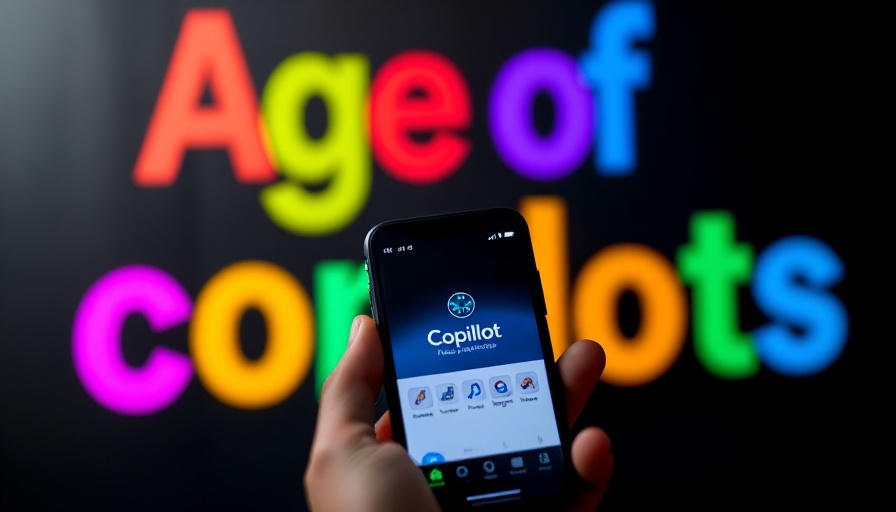
The Rise of AI Agents in Corporate Security
As businesses navigate a landscape increasingly dominated by digital threats, companies like Microsoft are stepping up their game. Microsoft's recent launch of six new AI agents for its Security Copilot demonstrates a significant escalation in the toolkit designed to combat cyber threats. This proactive move comes at a time when cybercriminals are adopting sophisticated techniques, making enhanced security measures crucial.
What Are AI Agents and Why Are They Important?
AI agents are programmed to perform tasks autonomously, often leveraging advanced algorithms to analyze data, learn from patterns, and even counter threats. These agents are pivotal in today's corporate world, especially in sectors where data breaches can mean catastrophic financial and reputational damage. By automating aspects of cybersecurity, organizations can respond more swiftly to potential threats, reducing the window of vulnerability.
Exploring Microsoft's New AI Agents
The six newly launched AI agents by Microsoft serve various functions aimed at enhancing the overall security landscape. With features including threat assessment and risk mitigation, these agents will not only monitor potential threats but also provide actionable insights to users. The agents work collaboratively under Microsoft’s Security Copilot, a platform that centralizes cybersecurity efforts and fortifies the company's defense mechanisms.
The Growing Importance of AI in Cybersecurity
The cybersecurity landscape is changing rapidly, and AI is at the forefront of this evolution. According to recent predictions, spending on AI-powered security solutions is expected to reach $46 billion by 2027 as organizations recognize the value of integrating AI technologies into their cybersecurity protocols. The recent wave of AI-driven agents demonstrates a commitment to this trend–showcasing Microsoft’s role as a leader in adopting innovative technologies.
Analyzing the Broader Impact of AI Agents
This development doesn’t only benefit Microsoft; it signifies a shift in how businesses will approach cybersecurity moving forward. With companies like Microsoft spearheading the integration of Copilot AI, there’s a real opportunity for smaller enterprises to leverage these technologies as well. This democratization of advanced cybersecurity tools can enhance protection across various business sizes, reducing the overall vulnerability in different sectors of the economy.
Challenges Ahead: The Flip Side of AI in Cybersecurity
However, there's a nuanced debate surrounding the deployment of AI in cybersecurity. While the implementation of AI agents promises enhanced security, there are concerns regarding the potential for automated systems to malfunction or produce false positives. With the reliance on sophisticated technology increases, so does the need for critical oversight to ensure these systems operate as intended without negating the human element in cybersecurity—a critical factor that shouldn't be ignored.
The Future of AI in Corporate Security
As Microsoft continues to innovate, it's clear that the role of AI in cybersecurity will only expand. Future predictions suggest that organizations adopting AI-driven security measures might see a substantial decrease in successful cyber attacks and data breaches. The interplay between AI agents and cybersecurity will likely shape the future of how companies operate safely in a tech-centric environment.
While the launch of Microsoft's six AI agents for Security Copilot marks a significant leap forward, the journey doesn't end here. As businesses continue to adapt, it is crucial to remain informed about these changes and consider the balance between automation and human oversight. Investing in AI technologies may be the next big step for companies looking to enhance their cybersecurity defenses.
 Add Row
Add Row  Add
Add 




 Add Row
Add Row  Add
Add 

Write A Comment